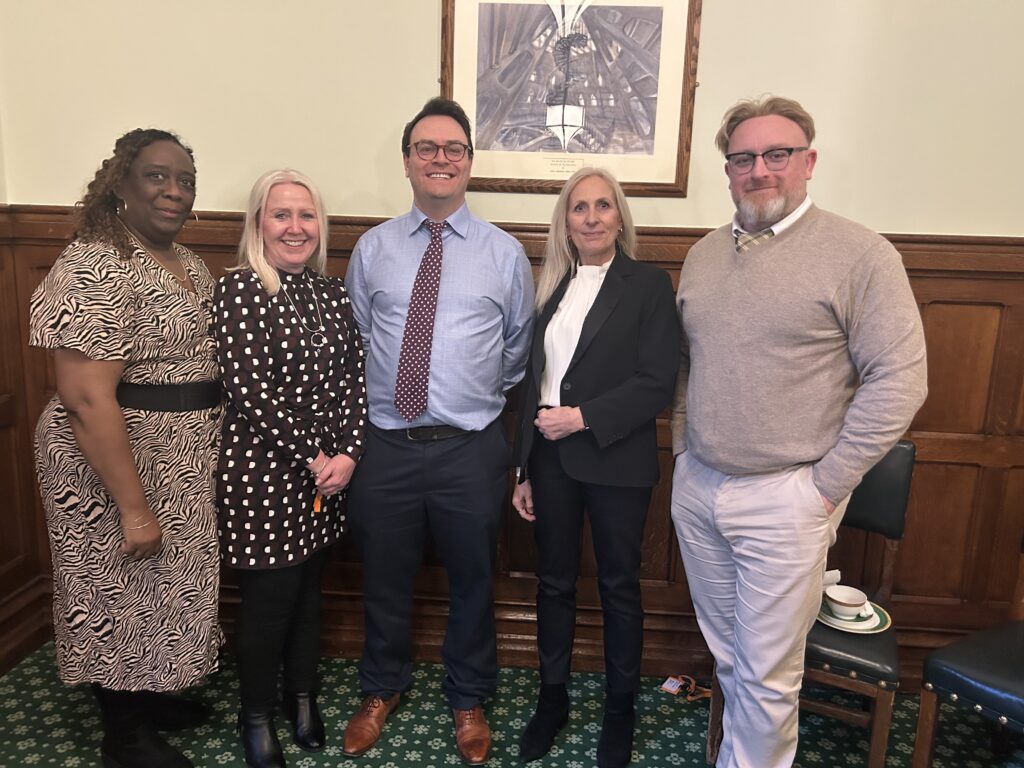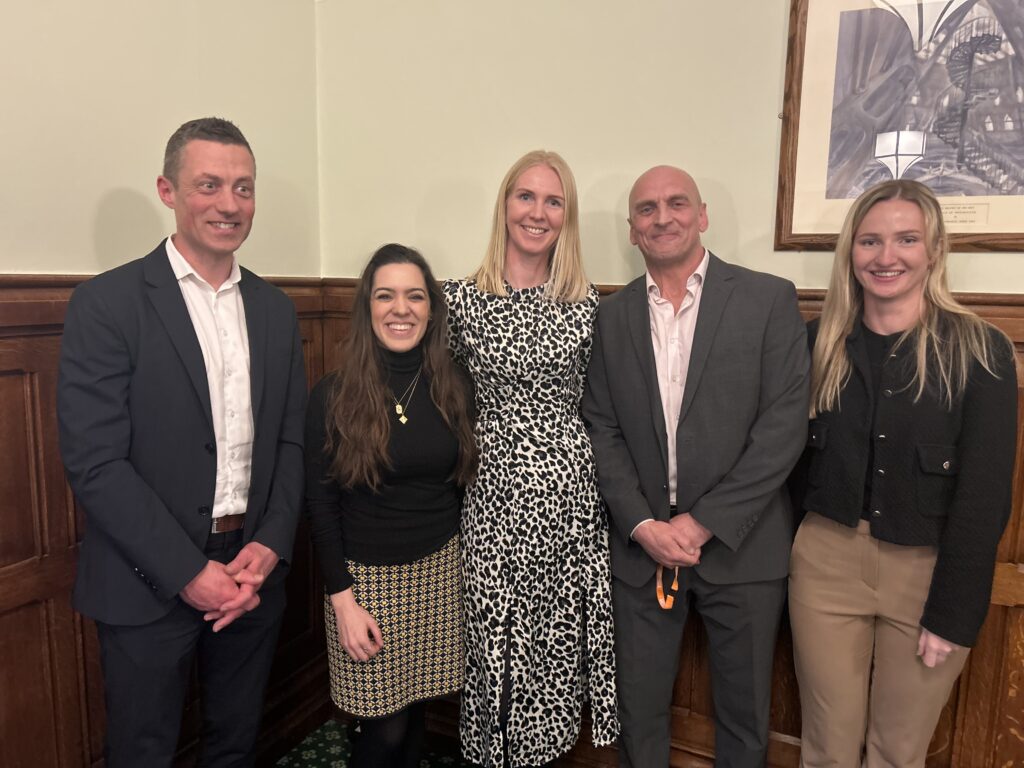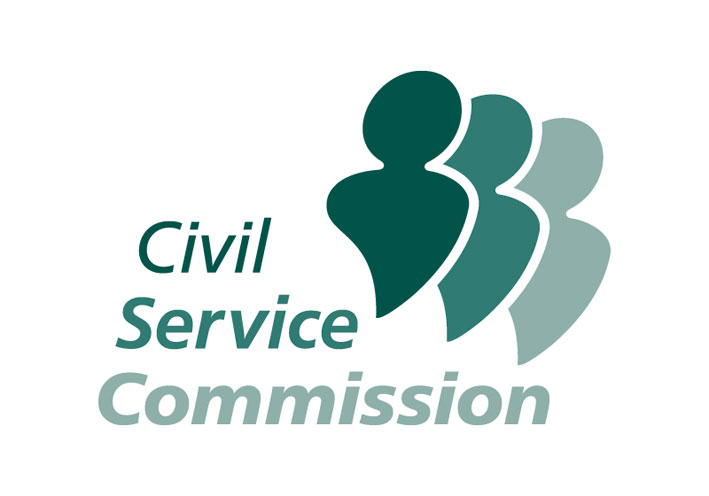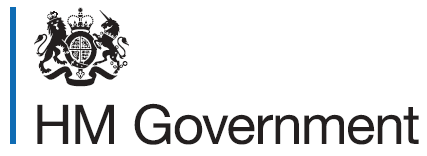Baroness Gisela Stuart, First Civil Service Commissioner
On 13 October 2025 the Civil Service Commission will formally assume responsibility for advising on applications from senior civil servants and special advisers under the government’s Business Appointment rules. This is an important development for the Commission, giving us responsibility for advising on exit, as well as being the independent regulator of entry into the Civil Service.
The Business Appointments Rules belong to the government. They exist to protect the integrity of government when someone moves on to a new role outside government, particularly where there is a risk or perception of a conflict of interest. The Rules apply to civil servants at all levels with the vast majority of applications handled by departments themselves.
From mid-October, when the Advisory Committee on Business Appointments (ACOBA) closes, the Civil Service Commission, as an independent statutory body, will be responsible for advising the most senior civil servants (Director General and above including equivalent senior diplomats and special advisers) who apply under these Rules.
Applications from former Ministers will go to the Adviser on Ministerial Standards, Sir Laurie Magnus.
The Commission is fortunate to have an experienced group of independent Commissioners from a wide range of professional backgrounds – from law and business to academia and the voluntary sector. A panel of three of our Commissioners and myself, as the First Civil Service Commissioner, will oversee the risk-based process. Our aim is to make the process as efficient as possible, making greater use of new technology where we can.
Our role is to provide judgement and scrutiny on applications under the Rules, ensuring that people can move smoothly between public service and other sectors in a way that is appropriate and transparent. And from 13 October 2025, the advice we have given to departing senior civil servants will start to be published on our website when an appointment is taken up or publicly announced. I will also be talking more about our approach at the Institute for Government in November and in evidence to PACAC over the autumn.
We will also begin designing the new system for the regular audits of departments’ handling of Business Appointment Rules applications at lower levels, scrutinising the way cases are handled at lower grades and sharing best practice. From 2026, these audits will take place alongside our audits of recruitment practice in departments.
Over the summer, we have been working closely with the Advisory Committee on Business Appointments (ACOBA), which previously advised on these cases as well as applications from former Ministers..The staff and members of ACOBA have shared their expertise and insights, and I want to thank them for helping us to ensure that the handover is as smooth and seamless as possible.
Looking ahead, the Commission has also been asked to make recommendations to government on how the Business Appointment Rules themselves might be strengthened. We want to help ensure that the framework is effective and proportionate and will be consulting stakeholders in the New Year as part of this work. Ultimately, the Rules are owned by government, but we will make suggestions on how they can be improved, based on our experience. We will also be providing quarterly updates to Ministers on our progress which will be published on our website too.
The Civil Service Commission is well placed to take on this new responsibility. The civil service is one of the UK’s greatest assets. Its ability to attract talented people, retain their skills, and then allow them to move in and out without damaging trust in government is vital.
Further information:
Read: First Civil Service Commissioner to Minister for the Cabinet Office (Friday 11 July 2025)
Read: Minister for the Cabinet Office to First Civil Service Commissioner (Wednesday 9 July 2025)
Read: Written statement from Pat McFadden, Chancellor of the Duchy of Lancaster (Monday 21 July 2025)
Read: Ethics and Integrity Commission to drive up standards across the public sector (Monday 21 July 2025)
The government announced on 21 July 2025 that ACOBA will close, and that as of 13 October 2025 the Civil Service Commission will take on a new role providing independent advice on, and scrutiny of, the application of the Business Appointment Rules (BARs) for civil servants and special advisers.
Interim arrangements
After Friday 12 September:
- Applications from former senior civil servants at Director General level and above (SCS3 / equivalent and above) should be submitted via their department to: the Civil Service Commission at bars@csc.gov.uk,
- Applications from the most senior special advisers (PB4 and equivalent) should be submitted via the department to: the Civil Service Commission at bars@csc.gov.uk.
Other applications:
- Former ministers should submit applications to: the office of the Independent Adviser on Ministerial Standards at ind.adviser.BARS@cabinetoffice.gov.uk.
- Applications from other senior Crown servants, for example members of the military, should be submitted via the department to: acoba@acoba.gov.uk for further information.
From 13 October ACOBA will no longer make decisions on your application. If you have a live application for consideration with ACOBA in the lead up to this date, ACOBA will be in contact with you directly to discuss the handling of your application.
The Civil Service Commission will publish further updates on how BARs cases within its remit will be considered in due course.
New Recruitment Principles Training Workshops
Following positive engagement with the Civil Service Commission’s Recruitment Principles training across 2024/25, we are pleased to announce a series of new training workshops aimed at further supporting departments to run fair, open and merit-based recruitment. Many of these draw on common trends identified through the Commission’s 2024/25 audit. These workshops will be held on a rolling basis throughout the year, with new dates and registration links added regularly.
All workshops will be held on Microsoft Teams. Joining links will be shared separately with registered attendees the day prior to scheduled sessions. You must use a government-issued email address to register.
Upcoming Training
Common Breaches and Lessons Learned
Wednesday 6 August | 13:00 – 14:00
Learn how common breaches impact audits and how to avoid them, with practical strategies and real-life examples.
Exceptions
Wednesday 20 August | 13:00 – 14:00
A focused session on commonly used exceptions - how and when they apply, and when to seek the Commission’s prior approval.
Job Adverts Masterclass: Crafting Effective Job Adverts
Wednesday 3 September | 13:00 – 14:00
Improve advert clarity, inclusivity and structure to enhance candidate experience and reduce risks. Includes a mock advert exercise.
The Use of Reserve Lists
Wednesday 17 September | 13:00 – 14:00
Understand how to compliantly manage reserve lists, including extensions, reassignments, and location changes.
Mastering the Audit Process
Wednesday 1 October | 13:00 – 14:00
An essential guide to preparing for audits - tracking processes, managing risks and maintaining compliance.
Commissioner-Chaired Campaigns & Panel Composition
Wednesday 15 October | 13:00 - 14:00
Covering the composition and responsibility of selection panels, the role of a department’s Link Commissioner, panel composition and diversity considerations, and insights from a Commissioner about their experience as a Chair.
Contact
For queries about:
- Common Breaches, Job Advertisements, Audit Process: contact compliance@csc.gov.uk
- Exceptions, Reserve Lists, Commissioner-Led Campaigns: contact info@csc.gov.uk
The Rt. Hon. Baroness Gisela Stuart of Edgbaston, First Civil Service Commissioner, has written to the Rt. Hon. Nick Thomas-Symonds MP, Minister for the Cabinet Office and His Majesty’s Paymaster General, responding to his invitation to the Civil Service Commission to take on a new role providing independent advice on, and scrutiny of, the application of the Business Appointment Rules (BARs) for civil servants and special advisers.
These changes will become operational on 13 October 2025. The Commission will publish further a further update later in the summer.
Read: First Civil Service Commissioner to Minister for the Cabinet Office (Friday 11 July 2025)
Further information:
Read: Minister for the Cabinet Office to First Civil Service Commissioner (Wednesday 9 July 2025)
Read: Written statement from Pat McFadden, Chancellor of the Duchy of Lancaster (Monday 21 July 2025)
Read: Ethics and Integrity Commission to drive up standards across the public sector (Monday 21 July 2025)
The First Civil Service Commissioner, Baroness Gisela Stuart, has written to the Cabinet Secretary and Head of the Civil Service, Sir Chris Wormald KCB, outlining how the Commission aims to help the Civil Service recruit and promote the best skills and capabilities to deliver for UK citizens.
The letter reaffirms the Commission’s guiding principle as an outcome-focused independent regulator with clear statutory duties and priorities.
Read: First Civil Service Commissioner to Cabinet Secretary, 17 June 2025
Chris Pilgrim
As the independent regulator, our job is to provide assurance that appointments into the Civil Service are made fairly, openly, and on merit - to help the Civil Service recruit the people and talent it needs. As well as personally chairing senior level recruitment, the Commission audits a sample of recruitment campaigns across departments each year to check recruitment is meeting the legal standard and to highlight positive practice - and we want to help you succeed. Whether you’re new to recruitment or an HR professional, here’s ten top tips on what our team looks for during a recruitment audit
1. Know the law: fair, open and on merit
All recruitment into the Civil Service must be made on merit, following a fair and open competition - it’s not just best practice, it’s the law. Make sure your team understands the Commission’s Recruitment Principles, and if in doubt, ask us for guidance - especially when you are structuring job adverts.
2. Get job adverts right
Adverts should be accessible in MS Word format for our audits and in their final, published form. To avoid breaches due to ‘human error’, check and proof-read the details carefully before going live. Candidates rely on having the full information in your advert - and we’ll be reviewing them closely during an audit.
3. Be clear about candidate assessment
Job adverts should clearly outline how candidates will be assessed at each stage - from sift to interview. Be clear about how CVs and personal statements will be matched against essential criteria, and if there’s a presentation, say how it will be assessed against the criteria set out in the advert.
4. Track the candidate journey
During an audit, we need to follow candidates through from application to the outcome. That means clear records showing who was successful, unsuccessful, placed on a merit list, withdrew, or didn’t attend. Good record-keeping helps demonstrate a fair process and makes audits smoother for everyone.
5. Avoiding breaches
Most breaches stem from simple human error, lack of awareness of the Recruitment Principles or failing to seek Commission approval where needed. If you’re unsure, ask us. Learn from audit feedback, act on our recommendations, and use them to improve your future campaigns - and your audit rating.
6. Using exceptions?
When appointments are made by one of the Commission’s permitted exceptions (without open competition), you must be able to provide evidence to show why they meet the exception criteria. In particular, Exception 1 (Temporary appointments) usage must be clearly justified. Departments should have a clear and reliable system for tracking all exceptions - they’re a key audit focus,
7. SCS recruitment matters
Departments need to evidence how Senior Civil Service recruitment is run, including the percentage of external competitions. We expect to see a higher proportion of fair and open external competitions than internal or exceptional appointments. Show us your data, and explain your approach.
8. Champion diversity and innovation
Departments should be actively working to recruit a diverse workforce. Use outreach, inclusive job design, and make use of life chance schemes. You should continually explore innovative approaches in recruitment wherever possible to broaden your talent pool - and tell us what you did. We’re looking for progress and innovation in recruitment.
9. Keep talking to us
Our compliance team is here to help - whether you need advice on job adverts, audit prep, or training. Reach out early and often. It’s much easier to avoid issues when we work together from the start.
10. Use our audit insights
We don’t just audit to find breaches - we also want to highlight what’s working well. Each audit is an opportunity to learn, improve, and align your recruitment with best practice. Our audit insights are intended to help departments strengthen their processes and get better outcomes.
We run regular training sessions on the Recruitment Principles so keep an eye on our website for future dates.
Follow these tips and get in touch with our team if you need support. Like you, our goal is to help departments recruit the best people into the Civil Service - fairly and openly.
The Commission’s role is to check that Civil Service recruitment is done on merit, through fair and open competition – as required by law.
Why our audits matter
The most visible part of the Commission’s work is probably its team of independent Commissioners who personally chair Civil Service recruitment competitions at senior levels, but we also audit recruitment carried out by departments and public bodies at all other levels each year.
We also look at how well departments are complying with the Recruitment Principles and are proactive, in their engagement with the Commission, to improve their processes
We recently completed this year’s audit round and here’s what we found.
What we did
Our team reviewed recruitment in all the 71 departments and public bodies we regulate.
We carried out full audits of 39 departments considered higher risk including:
- reviewing a sample of recruitment campaigns and exception cases;
- assessing innovation and diversity in recruitment practice;
- focus on SCS recruitment;
- meeting with the department (full audits); and
- issuing a final score and recommendations (full audits).
Our audits take into account the size and complexity of each organisation and all full audits are checked by a panel of our independent Commissioners.
We also completed 32 interim audits as a light health check of practice in the remaining organisations that were not subject to full audit this year..
The good news
We found most departments are broadly compliant with the Recruitment Principles. Good examples included:
- Clear, accessible job adverts.
- Strong evidence of merit-based processes.
- Innovative practices to reach new pools of people and improve diversity – like drop-in sessions and training for interview panels.
Areas for improvement
On occasions we found:
- Confusion over the use of essential and desirable criteria.
- Unclear use of CVs.
- Lack of clarity and consistency at sift stages.
- Errors on the management of appointments by exception (where open and fair recruitment is not followed)
- Some lack of familiarity with the Recruitment Principles, especially in smaller organisations.
- Limited evidence of efforts to reach more diverse pools of candidates.
What’s next
We will continue to share the findings of the audit programme with departments and senior leaders.
Organisations that received a lower rating will be re-audited by the Commission in 2025/26 and others close to this threshold will also be rechecked.
We will be monitoring how departments follow the Commission’s recommendations.
We will also continue running workshops and training, including on the correct use of exceptions, frequent breaches and how to avoid them, and other common mistakes that we see in fair and open recruitment.
We are also looking at new tools, including digital solutions and AI, that will help us to improve the efficiency of our audits.
Final word
It’s clear that most departments are doing well – but there is always room for improvement. The Commission is here to help ensure Civil Service recruitment is fair, open and is based on merit. We are committed to supporting a highly skilled Civil Service workforce to deliver for the country.
We were delighted that over 400 people attended our Meet the Commissioners online event in March where three Civil Service Commissioners talked about how they oversee Senior Civil Service (SCS) recruitment to ensure it is carried out fairly, openly and on the basis of merit.
“We facilitate the process, but also oversee the fairness of the process, including in relation to ministerial involvement.”
- Martin Spencer
First Civil Service Commissioner Baroness Gisela Stuart joined Atul Devani, Link Commissioner for the Department for Science, Innovation and Technology and the Department for Energy Security and Net Zero, and Martin Spencer, Link Commissioner for the Department for Business and Trade. Between them, Atul and Martin bring a wide range of experience in business, technology and entrepreneurship.
The panel explained the remit of the Civil Service Commission, as set out in the Constitutional Reform and Governance Act 2010 and interpreted by the Commission’s Recruitment Principles. For Senior Civil Service roles at SCS Pay Band 2 (typically referred to as Directors) and above (Directors General and Permanent Secretary), a Commissioner will personally oversee the recruitment process. At other grades departments make appointments in line with the Recruitment Principles and the Commission carries out audits of their recruitment practice.
"We aim to bring out the best in all candidates."
- Atul Devani
The Commissioners explained the Senior Civil Service recruitment process from start to finish - from deciding the essential criteria and putting together the application pack, to agreeing the different types of assessments that candidates will be asked to take part in to ensure the criteria is thoroughly and accurately tested.
The panel also offered views on how candidates can optimise their CVs and explained what to expect from a Staff Engagement Exercise, which are often used as part of the appointment process to the most senior roles. Finally, they touched on what candidates should expect from the interview stage and how they can ensure their best performance, particularly when they are new to the public sector.
“No organisation has all the skills it needs at any one time. The Civil Service often needs to look to external applicants for skills it urgently needs.”
- Baroness Gisela Stuart
Atul explained that guidance from the Commission helps ensure processes are accessible for candidates from outside of the Civil Service and that Commissioners see it as a priority to ensure that external competitions demonstrate openness to all candidates, whether from inside or outside the Civil Service.
“Questions are designed so external candidates can answer questions and utilise their own experience.”
- Atul Devani
Atul and Martin talked about the importance of candidates shaping all stages of their application, such as when writing personal statements, with explicit reference to the advertised essential criteria. They explained that these are key when a panel is considering merit order. They also provided advice on applications for roles that represent a career shift for the candidate.
“When you are applying for roles, think laterally about how your experience can be applied. Don’t apply for the job you currently have. Rather, project yourself onto the role you will transition into. I'm always impressed by candidates who understand the environment in which the role is operating and think about what they can bring to the role."
- Martin Spencer
Gisela ended the discussion by outlining the Commission’s plans for enhancing the fairness and openness of Civil Service recruitment in the next financial year. This will include new bespoke internal training sessions and further events like this one.
We’d like to thank all those who attended the event. Keep an eye on our website for future Civil Service Commission online and in person events.
The First Civil Service Commissioner, Baroness Gisela Stuart, hosted the joint winners of the Commissioners’ Mark of Excellence at the House of Commons on 6th March.
The Home Office won for their strategic approach to recruiting more women into frontline roles and outstanding work to support external candidates at different stages of the recruitment process.
They shared first place with the Government Digital and Data Function whose innovative regional tech partnerships helped secure senior digital talent on secondment to contribute to the work of Government.
Baroness Gisela Stuart said:
‘We want to celebrate and share the success of hiring teams that go the extra mile to attract external talent into civil service roles.
“The Home Office and Government Digital Services entries impressed our judging panel with innovative new approaches, demonstrating just what is possible within the ‘fair, open and on merit ’ principles for appointment into the Civil Service.
“It was a real pleasure to meet the teams and hear more about what they did and the benefits they are seeing in their departments.’
Find out more about the 2024 joint winners

Commissioners’ Mark of Excellence winners, Home Office

Commissioner’s Mark of Excellence winners, Digital and Data Function
A new Framework Agreement with the Cabinet Office for monitoring and understanding the strategy, performance and delivery of the three Independent Offices supported by the Commission secretariat – the Civil Service Commission, the Commissioner for Public Appointments and the Advisory Committee on Business Appointments - has been published today.
It sets out the core responsibilities of each organisation, describes the governance and accountability framework that applies between the Cabinet Office and the three offices, and sets out how the day-to-day relationship works in practice, including in relation to governance and financial matters.
The Framework Agreement replaces a previous Memorandum of Understanding dating back to 2010 and ensures that the Independent Offices are not treated as a Business Unit of the Cabinet Office for the purposes of business planning.
This agreement is in line with the expectations set out in the latest HM Treasury guidance in Managing Public Money.

